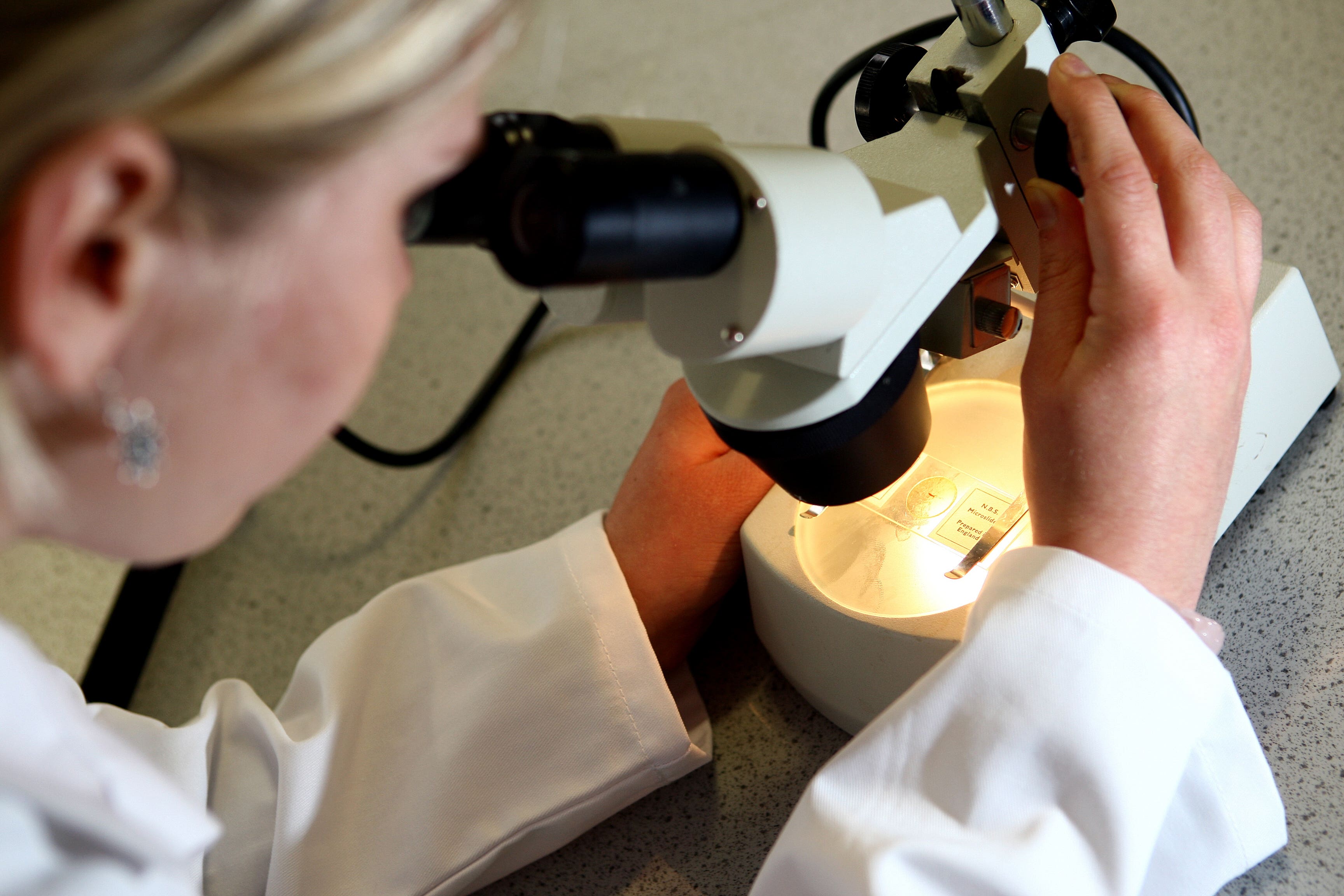Whole-genome sequencing data ‘can transform cancer care with tailored therapy’
Combining clinical and genomic data creates a key resource for clinicians to better predict outcomes and tailor cancer treatments, researchers say.

A comprehensive test that analyses a patient’s complete set of genetic material “can transform cancer care” in the NHS by helping doctors provide them with more personalised treatments, scientists have said.
In the largest study of its kind, researchers have found that combining clinical health data with information gathered from whole-genome sequencing tests – which determines a person’s genetic make-up – can provide cancer patients with tailored care.
Genetic faults or mutations often play a key role in the development of cancer and there are precision drugs that can target them.
This study shows how we can transform cancer care from a 'one size fits all' approach into precision healthcare
Knowing details of a patient’s illness as well as their genetic make-up can help clinicians choose the best treatment for patients.
The team looked at data collected from more than 13,000 cancer patients covering more than 30 types of solid tumours – abnormal masses of tissue – over a five-year period.
It found that more than 90% of brain tumours and over 50% of colon and lung cancers showed genetic changes that could help doctors make key decisions about surgery or specific treatments they might need.
The data also revealed certain inherited risks in more than 10% of ovarian cancers, offering crucial insights for clinical care, the researchers said.
Professor Sir Mark Caulfield, vice principal for health at Queen Mary University of London, said: “This study shows how we can transform cancer care from a ‘one size fits all’ approach into precision healthcare and defines specific genomic signatures that predict treatment response and outcomes, which may usher in expanded use of whole genomes for cancer care.”
The researchers said their work, published in the journal Nature Medicine, supports the increased use of genomic testing in cancer care.
The NHS offers whole-genome sequencing as part of routine care for patients with certain rare diseases and cancer, including all childhood cancers.
Its long-term plan aims to make this more widely available – through the NHS Genomic Medicine Service.
The patients were part of the 100,000 Genomes Project – a groundbreaking initiative launched in the UK with the goal of sequencing and analysing the genomes of 100,000 individuals, including patients with rare diseases and cancer.
A whole genome sequencing test looks at person’s whole genome – the 3.2 billion letters that make up our DNA – but its main focus is to look for changes in genes related to cancer.
This technique is used to compare DNA from a patients’ tumours to the DNA in their healthy tissues, the researchers said.
The study, led by Genomics England, NHS England, Queen Mary University of London, Guy’s and St Thomas’ NHS Foundation Trust and the University of Westminster, was able to identify specific genetic changes in the cancer associated with better – or worse – survival rates.
We are showing how cancer genomics can be incorporated into mainstream cancer care across a national health system and the benefits that can bring patients
The researchers said the cost of whole genome sequencing testing is dropping, which in turn, will “influence the type of testing that gets done in in NHS”.
Dr Nirupa Murugaesu, principal clinician – cancer genomics and clinical studies at Genomics England, and oncology consultant and cancer genomics lead at Guy’s and St Thomas’ NHS Foundation Trust said the findings are “an important milestone in genomic medicine”.
She said: “We are showing how cancer genomics can be incorporated into mainstream cancer care across a national health system and the benefits that can bring patients.
“By collecting long-term clinical data alongside genomic data, the study has created a first-of-its-kind resource for clinicians to better predict outcomes and tailor treatments, which will allow them to inform, prepare, and manage the expectations of patients more effectively.”
Health minister Andrew Stephenson said: “This groundbreaking research demonstrates the power of genomics and is already helping to transform care, allowing patients to receive more tailored treatment and driving improved diagnosis.
“But we won’t stop there. We want to harness this innovation to improve care for patients and affirm our position as a life sciences superpower – leading to quicker and more targeted interventions.”
Bookmark popover
Removed from bookmarks